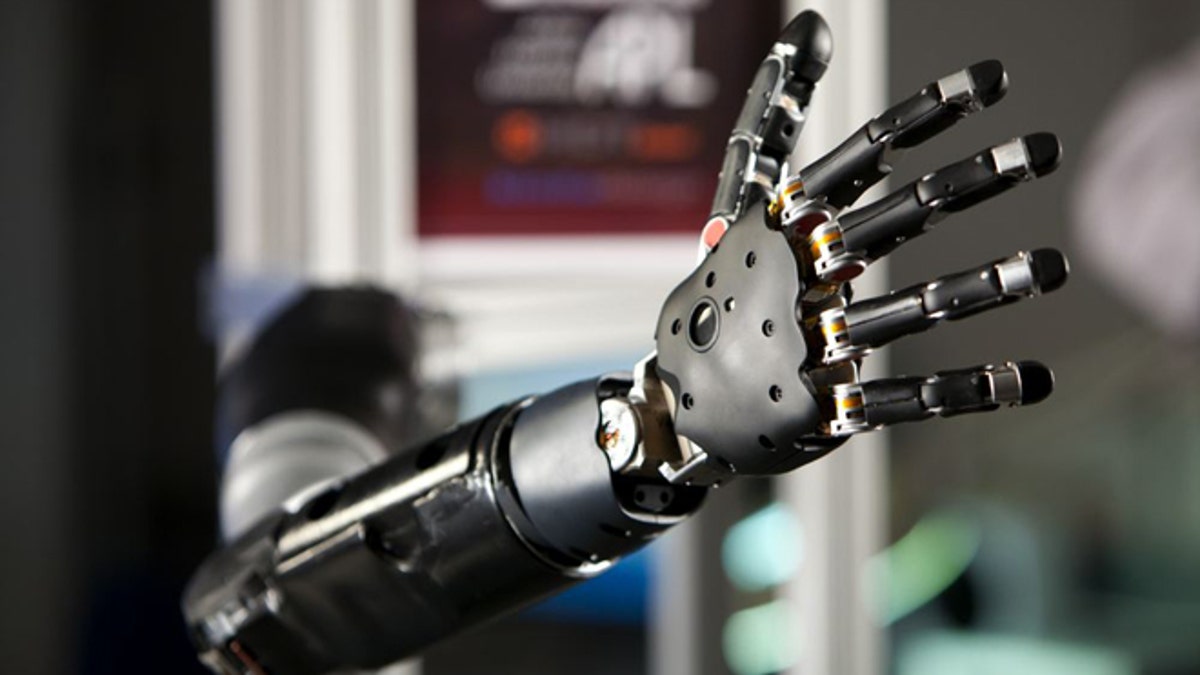
File photo - prosthetic arm, designed by the John Hopkins University's Applied Physics Laboratory (JHU/APL) and funded by the U.S. Department of Defense. (DARPA and JHU/APL) (DARPA and JHU/APL)
It's not a question of if robots will rise up and overtake humanity. It's a question of when.
According to a new Pew Research Center study, 65 percent of Americans think that within 50 years, robots will "definitely" or "probably" do much of the work currently executed by living, breathing people.
Still, most suffer from "it'll never happen to me" syndrome: Pew's national survey of 2,001 adults suggests about 80 percent of today's workers expect their own jobs will remain in the fleshy hands of humans.
The younger generation—18- to 49-year-olds perhaps already accustomed to virtual assistants and AI technology—are far less concerned than their contemporaries, according to Pew.
It turns out that most people fear job loss not due to robot overlords, but because of poor management, a shrinking industry, cheaper available labor, and the competitive market.
But, if you believe the American public, some time in the next few decades may be the right time to find a job in the government, education, or nonprofit sectors: Just 7 percent expect those fields to be affected. Nearly 15 percent, however, are sure large, medium, or small businesses are in trouble.
Pew conducted a similar survey in 2014, quizzing nearly 2,000 technology experts about how the increasing automation of our world will impact us, and particularly how it will affect human employment.
The survey identified a number of reasons to be hopeful instead of fearful of cyborgs. Among the pros: technology that frees us from day-to-day drudgery and the invention of new types of work. On the flip side, some experts suggested that the next wave of innovation in robotics will focus more closely on white-collar work, leaving many highly skilled workers displaced into lower-paying industry jobs or permanent unemployment.
This article originally appeared on PCMag.com.








































